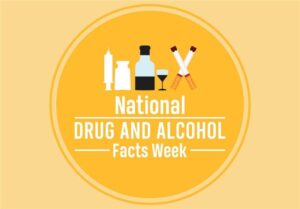Learn the Facts About Alcohol and Drug Addition this National Drug and Alcohol Facts Week

National Drug and Alcohol Facts Week (NDAFW), observed from March 17-23, is dedicated to educating the public about the realities of substance use and addiction. This annual observance aims to dispel myths and provide science-based facts about how drugs and alcohol affect physical and mental health. With millions of Americans struggling with substance use disorders, increasing awareness about prevention and treatment options is crucial. Psychiatry in New Jersey plays a key role in addressing addiction by offering specialized care to help individuals manage substance use disorders and improve their overall well-being.
The Scope of Drug and Alcohol Use in the United States
Substance use disorders are a significant public health crisis. According to the National Institute on Drug Abuse (NIDA):
- Nearly 20 million Americans struggle with a substance use disorder
- Over 140,000 deaths occur each year in the U.S. due to excessive alcohol use
- More than 106,000 overdose deaths were recorded in 2021, with opioids being a leading cause
Nearly 1 in 8 adults meets the criteria for both a substance use disorder and a mental health disorder
These statistics highlight the widespread nature of addiction and the urgent need for prevention, education, and treatment.
The Effect of Addiction on Life Expectancy
Addiction significantly reduces life expectancy. Studies show that people with substance use disorders may live 10 to 20 years less than those without. The reasons for this include:
- Increased risk of overdose and poisoning
- Higher rates of liver disease, heart disease, and stroke
- Greater likelihood of accidents, injuries, and suicides
- Weakened immune function leading to chronic illnesses
Without intervention, addiction can take a devastating toll on a person’s physical health, relationships, and overall quality of life.
How Psychiatry Helps Treat Addiction
Addiction is a complex disease that requires a multidisciplinary approach to treatment. Psychiatry plays a crucial role in helping individuals manage substance use disorders through:
- Behavioral therapy: Cognitive-behavioral therapy (CBT) and other techniques help individuals understand and change addictive behaviors.
- Medication-assisted treatment (MAT): Medications like buprenorphine or naltrexone can help reduce cravings and withdrawal symptoms.
- Dual diagnosis treatment: Many people with addiction also struggle with mental health disorders like depression or anxiety. Addressing both conditions is key to long-term recovery.
At The Medical Group of New Jersey, we offer addiction psychiatry in New Jersey that is compassionate and evidence-based. If you or a loved one is struggling with substance use, our team is here to offer the support and care needed to reclaim a healthier, more fulfilling life.